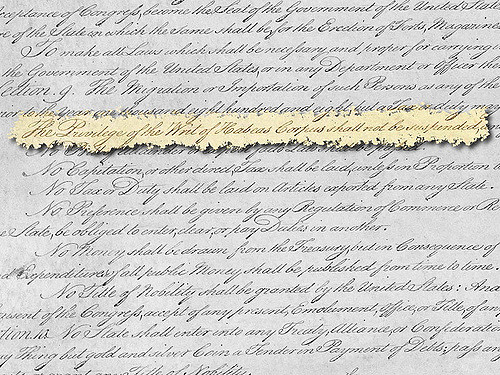
Prior to this week, only one detained immigrant had won a habeas case in Virginia without having first received a final order of deportation. Now, there are two.
We are thrilled to announce that the pro bono team of Sirine Shebaya, Wiley Rein, and CAIR Coalition has won one of the first habeas petition ever in Virginia for a client facing prolonged immigration detention prior to being given a final order of deportation. In this novel case, the Eastern District of Virginia determined that the prolonged immigration detention of the client had become unconstitutional.
The team’s client is a long-time green card holder who has been detained for over 15 months while his attorneys fight his case in immigration court. The government contended that he had no right to a bond hearing based on a past criminal conviction. His pro bono team argued that keeping him detained for such an extended length of time without providing a bond hearing is unconstitutional. In granting the habeas petition, the court ordered the government to schedule a bond hearing within 30 days. This case was a great example of pro bono teamwork, with leadership of the case by habeas and prolonged detention expert Sirine Shebaya co-counseling with Wiley Rein pro bono attorneys Nick Peterson, Matt Gardner, Derrick Petit, and Stewart Day and CAIR Coalition attorney Adina Appelbaum.
Successful cases challenging prolonged immigration detention in district courts within the Fourth Circuit have traditionally involved noncitizens who have already received deportation orders (“post-order”) but remain detained for a long period because the government logistically cannot deport them. These cases are possible due to the Supreme Court decision Zadvydas v. Davis, 533 U.S. 678 (2001), which held that noncitizens who remain detained post-order have the right to a bond hearing after six months.
This case was different as it challenged prolonged detention prior to an order of deportation (“pre-order”). After serving their criminal sentences, countless detained immigrants face the double punishment of indefinite and protracted immigration detention with no right to a bond hearing. This is especially burdensome in the pre-order context as detained noncitizens who exercise their right to fight their deportation, for example by applying for asylum to avoid persecution and torture in their home country or appealing an incorrect immigration judge decision, can often be detained for years as their cases work through the immigration system. Unlike the criminal system where a bond hearing happens automatically, in the immigration context people can be detained for a very long time without limitations.
In the Fourth Circuit, we now have three district court decisions finding that prolonged pre-order detention without a bond hearing is unconstitutional. The first such decision was issued by a judge in the District of Maryland last year, followed by these two decisions in the Eastern District of Virginia. We are awaiting a decision on the same issue from the Supreme Court in Jennings v. Rodriguez, 136 S. Ct. 2489 (2016). Jennings has the potential to benefit countless detained immigrants who face protracted immigration detention with no right to a bond hearing, even after serving their criminal sentences.
Many thanks to Sirine for her dedication to fighting this important detention issue and to Wiley Rein LLP for their commitment to combat their client’s prolonged detention while already doing complex crim-imm litigation on the merits of his case through CAIR Coalition's Crim-Imm Pro Bono Project.
